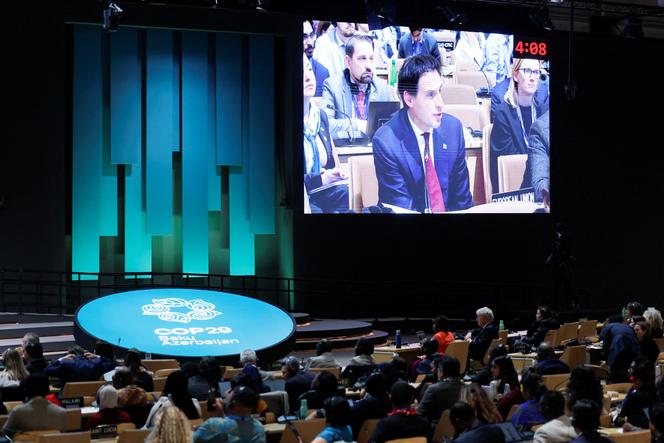


After the UN climate talks (COP29) came to a contentious end early Sunday morning in Baku, Azerbaijan, Stefan Aykut, a sociologist and political scientist at the University of Hamburg (Germany) and specialist in climate governance reflected on the role and inherent limitations COPs in addressing climate change.
It is a minimal agreement. We've saved face at a time when climate policies are going through an existential crisis. It was crucial that the COP ended with a document and not be a failure. The agreement calls for developed countries to mobilize $300 billion a year (€287 billion) by 2035 to finance transition and adaptation in developing countries. However, this falls far short of the demands of the Global South. To achieve even this result, nations avoided substantive discussions on phasing out fossil fuels – the primary driver of global warming. The implementation of the 2024 Dubai Agreement, providing for a transition away from fossil fuels, was postponed. It is a major setback at a time when countries need to publish more ambitious climate plans.
Poorer developing countries have little choice. Their demand for around $1,3 trillion in annual public financing was highly unrealistic. They were also caught up in a negotiation with the Global North, which resists large financial commitments, and major emitters and oil-exporting nations in the Global South, which opposes fossil fuel phase-outs. The compromise reached between these blocs comes at a high cost for vulnerable nations: reduced ambition and less funding.
There's also a strong commitment to multilateralism that drove compromises at this COP. At the start of the conference, the process seemed on the brink of collapse – amid Trump's election and plans to withdraw the US from the Paris Agreement, ongoing wars, Azerbaijan's president praising oil as a "gift from God," and Argentina's negotiators walking out. Developing countries avoided a financial clash to keep multilateralism alive. COP29 demonstrated that multilateralism, while strained, is not dead.
The COPs cannot be expected to solve the climate crisis outright. They're more of a forum to amplify debates happening elsewhere– a venue to formalize what other processes, particularly at the national level, make possible.
You have 59.82% of this article left to read. The rest is for subscribers only.
